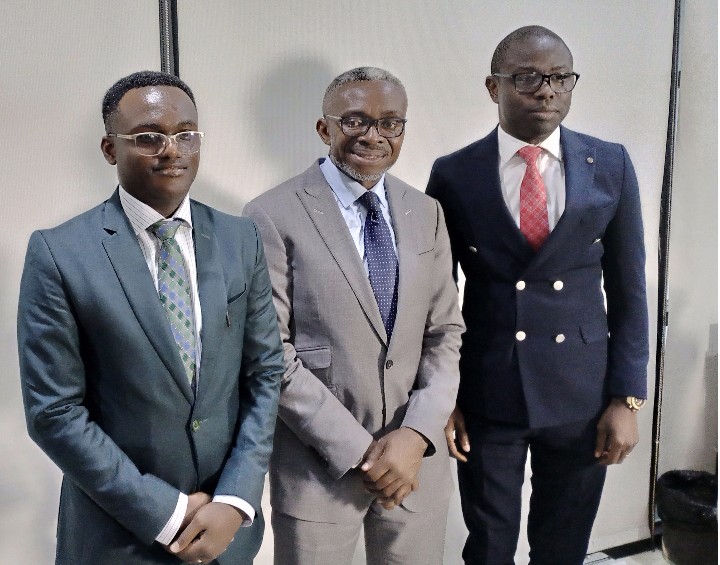Nigerian government has been charged to take the bold step and remove subsidies on petrol and electricity consumption in the country in 2023, to reduce the financial burden coming from those ends.
This formed part of policy recommendations made in the 2022 Banking Sector Report published by Afrinvest West Africa Plc.
Join our WhatsApp ChannelThe report which is the 17th edition published by the leading wealth advisory and investment banking firm in Nigeria, was launched recently during the 27th anniversary of the company.
Titled Brace for Impact, the report chronicled activities of the Nigerian banks, looking at the environment they operated in 2021; their performances on several metrics.
At a media chat on Tuesday, November 1, 2022, deputy managing director of Afrinvest, Victor Ndukauba who had earlier presented the report during the companys 27th anniversary, said that looking at all activities in other sectors of the Nigerian economy, the report came to a conclusion that irrespective of whatever choices made both at the political and economic fronts, the country faces tough times ahead and therefore, urged the government to take the bull by the horn by removing subsidies which instead of cushioning effects of cost of certain products like petrol, have turn to a huge drain pipe of public funds.
Ndukauba explained that the reason behind the recommendation is that the country is currently reeling under the weight of heavy debt with huge sums of money spent on servicing it which is unsustainable.
READ ALSO: Naira Redesign: Extend Deadline To One Year, Experts Tell Nigerian Gov’t
Data shows that petrol subsidy bill in 2022 has far overshot other years, with the daily spend on maintaining it rising to as high as N18.4 billion.
In April this year, the National Assembly approved N4 trillion for petrol subsidy as captured in the countrys 2022 budget. This represents nearly 25 percent of the budget.
The 2023-2025 Medium Term Expenditure & Fiscal Strategy Paper indicated that debt service has gulped N6.16 trillion in 16 months and further estimated that it will cost N10.43 trillion by 2025.
Ndukauba said As we all know, the economy seems to be in dire strait, struggling with all sorts of issues, from low revenues to runaway foreign exchange rates. The government is struggling for funding, debt challenges in terms of how the revenue is going into servicing debts.
There are certain prescriptions that we have made in terms of doing away with petrol subsidies or perhaps, power sector subsidies and even FX subsidies. Each would have its own very tough impact on the economy. If we do go ahead to make those tough choices, it means that things would probably get worse in the interim before it would actually begin to get better.
“And so, we are saying that regardless of whatever happens, people should just brace themselves for a tough 2023,” Ndukauba stated.
The Afrinvest’s 2022 report noted that when those measures are implemented it will lead to short term spike in cost of things in the country and urged the citizens to brace up for the challenges ahead.
It added that the measures would at the long term, lead to improvement in government revenue from crude oil sales which will also increase FX inflows and boost foreign reserves and consequently, encourage private investors to invest in the oil and gas value chain and other critical sectors of the economy.
The report also suggested optimising exchange rate management, fixing structural loopholes and halting reckless fiscal spending as part of monetary policy to bring down the high inflation in the country.
Ike Chioke, group managing director, Afrinvest West Africa said that apart from Nigerians preparing for reforms that would turn the economy around, it also means that the incoming administration requires having a competent political leadership with the will to implement tough reforms that would change the economy for good.
“We found ourselves where we are today somewhat by self-inflicted accident. So, how do we get out of it? As we look towards 2023, we would like to hope that the new leadership would recognise that there has to be a rethink of the approach.”
Speaking on the Optimus, a digital investment platform which Afrinvest launched during its 27th anniversary, Chioke said it was designed to help create and manage wealth and ultimately further the drive for financial inclusion.
He said Optimus is a Fintech platform that offers customers a window into many financial and wealth management opportunities.
He stated that Afrinvest has been in the financial services sector for close to three decades and has got all the experiences and expertise in risk management and also has licenses from the regulatory authorities for all the services it offers.
“Optimus gives you a window similar to any other Fintech platform, and allows you to seamlessly navigate different portfolios. When you are on Optimus, the system is automatically doing it for you because it has already onboarded you across board; and we can offer you competitive services similar to any Fintech, but then you have the comfort of knowing that behind this platform is real expertise, knowledge and experience of the markets.
“In risk management, nobody is going to take your money and say it is going to double to 100 per cent over night, that’s a lie, it won’t happen that’s what Optimus is all about,” Chioke stressed.
“So we believe that it will help our clients manage their money much more effectively,” he added.
He disclosed that they have a strategic partnership with a Bureau De Change operator licensed by the CBN that facilitates conversion into foreign curencies like Dollars as the clients may want it when they enrol in the platform.
Some of the products offered in the Optimus platform include OptiFlex (naira/dollar), a high-yield investment account that allows one to save periodically to reach a certain target; OptiLock (naira/dollar), which allows one to set aside a sum of money for a fixed period, ranging from three months to two years, for an attractive interest rate.
On the safety of the digital investment platform, the Afrinvest GMD said that with years of experience and expertise, the firm has all it takes to deliver effective services to customers, adding that it would not do what it was not licensed to do.
“We are not going to do something that we are not licensed to do. So, each of the services that Optimus gives you is supported by a licensed counterparty in that process.”
On how the platform will stimulate financial inclusion to create more wealth for Nigerians, Suru Daniels, Managing Director, Afrinvest Capital Limited, said the job of the company is to channel the capitals raised through the investment process into strategic economic points such as oil and gas, real estate, agriculture/agro-processing, technology and other vital sectors, to boost productivity, while also creating value for the investors as well.
“We think that by developing what we have done with Optimus, we have created another ocean pool of capital to help economic development. The impact of what of we see coming out of this is that more jobs will be created,” Daniels stated.
He added that it has a lot of potential socio-economic impacts.
The MD said all investments in Optimus are safe as the firm is also supervised by the regulatory authorities like Securities and Exchange Commission (SEC) Nigerian Exchange (NGX), etc., and also has custodian that keep the funds while their job is to manage it.
The Optimus he said, is also an innovative way of supporting government’s cashless policy without compromising any standard.
The company has the following subsidiaries: Afrinvest Capital Limited (ACL), Afrinvest Securities Limited (ASL), Afrinvest Asset Management Limited (AAML), Afrinvest Trustees Limited (ATL), and Afrinvest Research & Consulting (AR&C).
Chioke said the newest subsidiary, is Andromeda Technology Solutions which built Optimus platform.
“Optimus is the brand you see but the actual legal entity that owns it is the Andromeda Technology Solutions.”
He said the parent company, Afrinvest, is working towards having more subsidiaries and overseas expansion to a position in the global market.
Victor Ezeja is a passionate journalist with seven years of experience writing on economy, politics and energy. He holds a Master's degree in Mass Communication.
















Follow Us